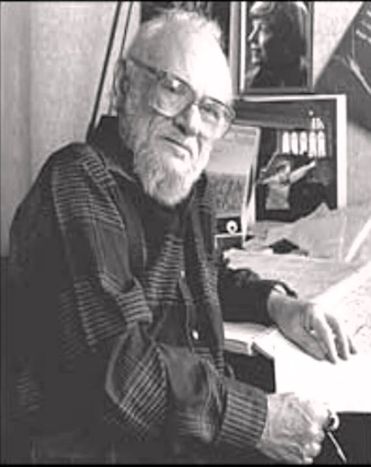

|
|
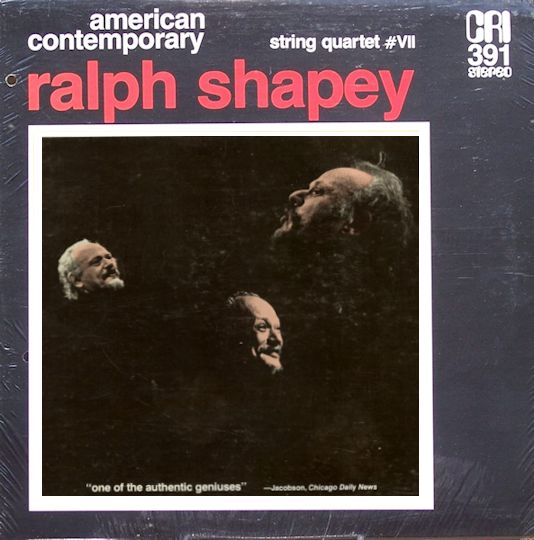
| The Art of Fugue, or The Art of the Fugue (German: Die Kunst der Fuge), BWV 1080, is an incomplete musical work of unspecified instrumentation by Johann Sebastian Bach. Written in the last decade of his life, The Art of Fugue is the culmination of Bach’s experimentation with monothematic instrumental works. The work consists of 14 fugues and four canons in D minor, each using some variation of a single principal subject, and generally ordered to increase in complexity. |
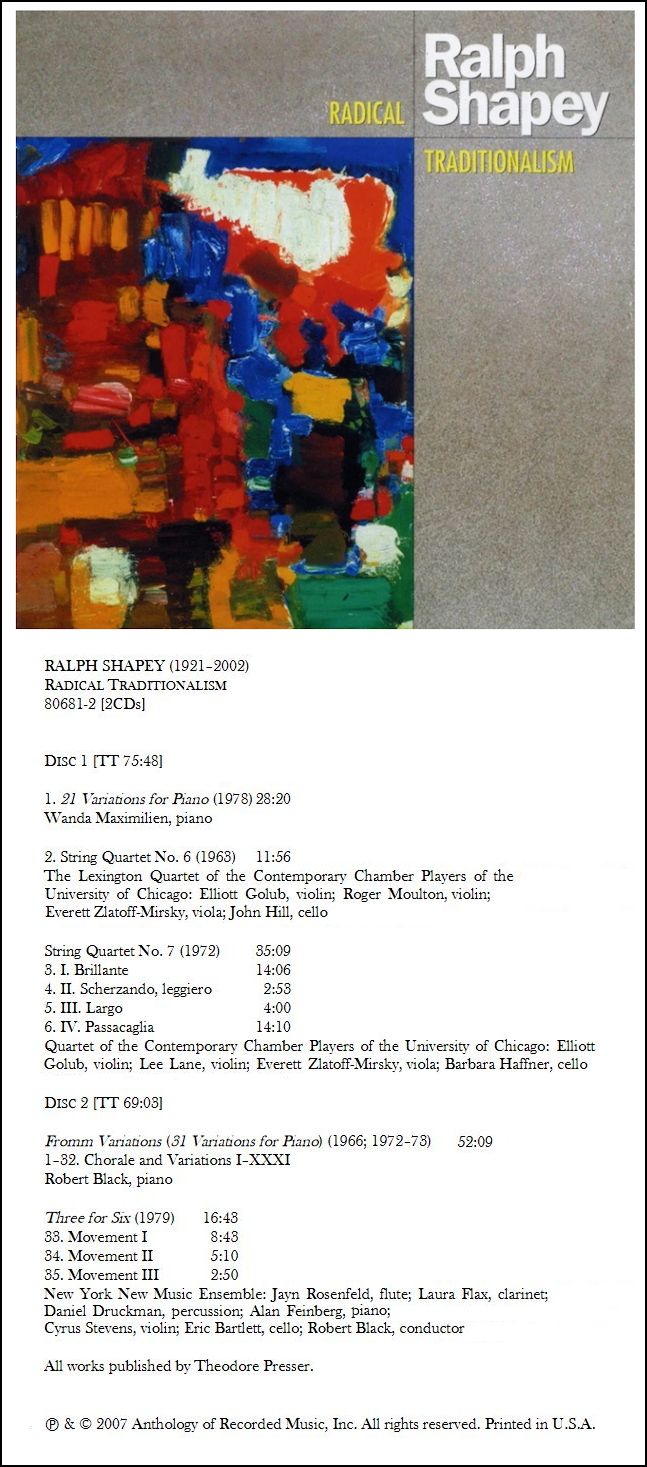
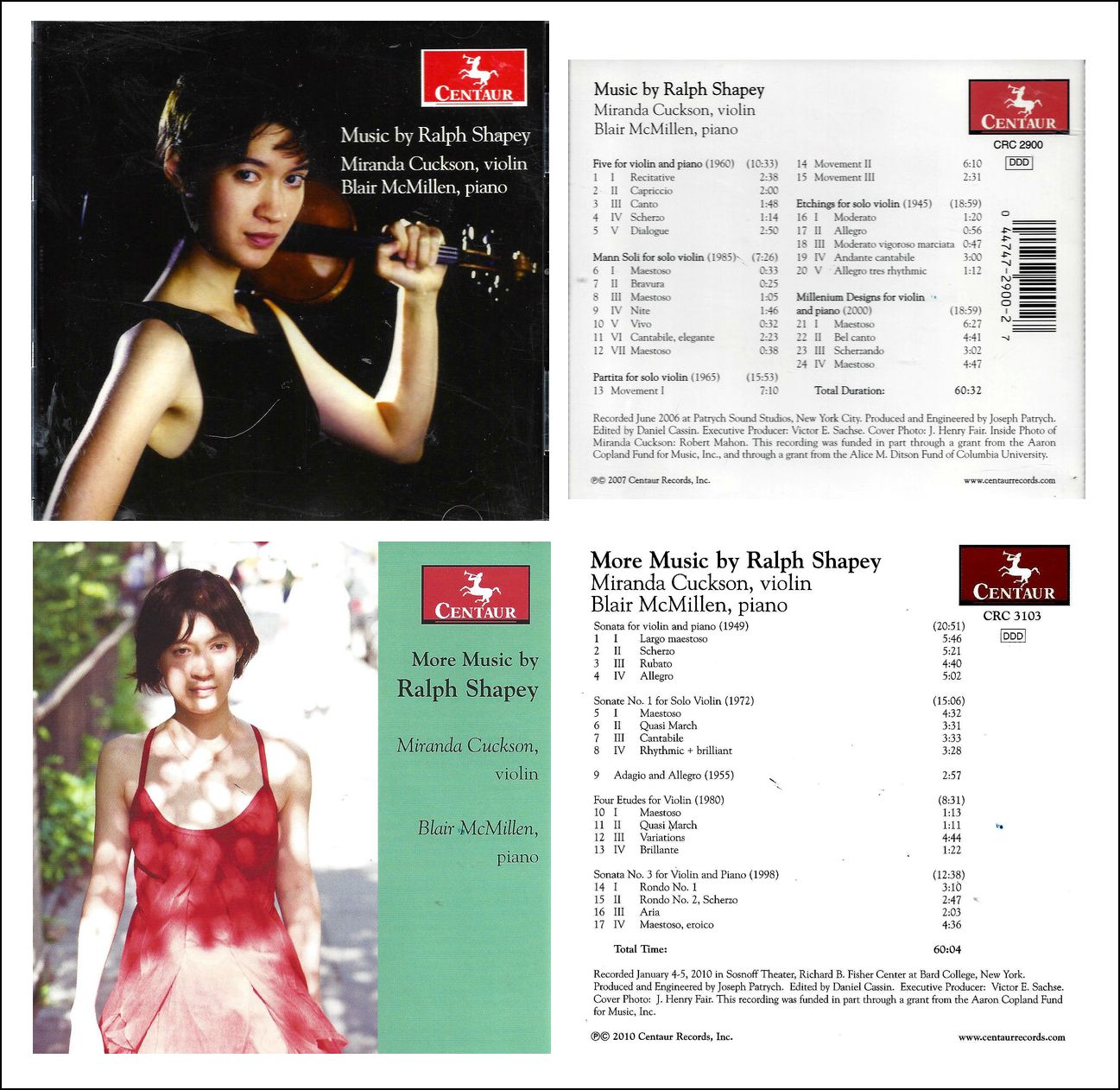
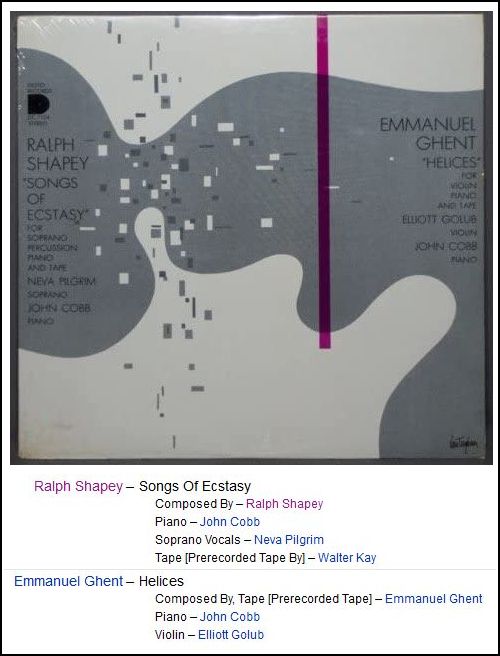 BD: And this wasn’t just the writing
of one man. It was the generally held opinion.
BD: And this wasn’t just the writing
of one man. It was the generally held opinion.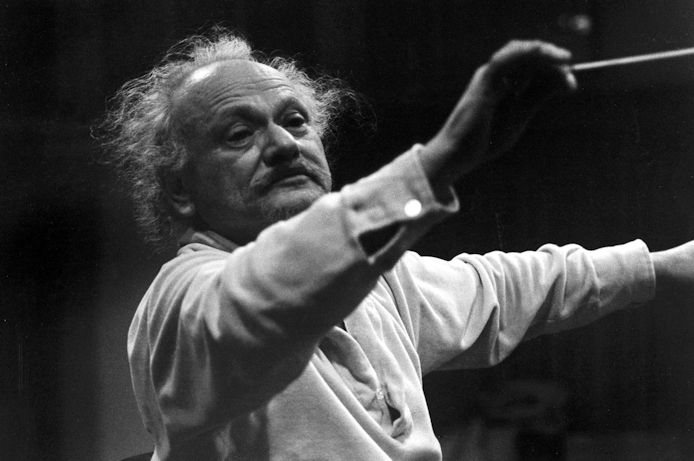
|
Machaut survived the Black Death that devastated Europe, and spent his later years living in Reims composing and supervising the creation of his complete-works manuscripts. His only surviving sacred work, Messe de Nostre Dame, is the earliest known complete setting of the Ordinary of the Mass attributable to a single composer. |
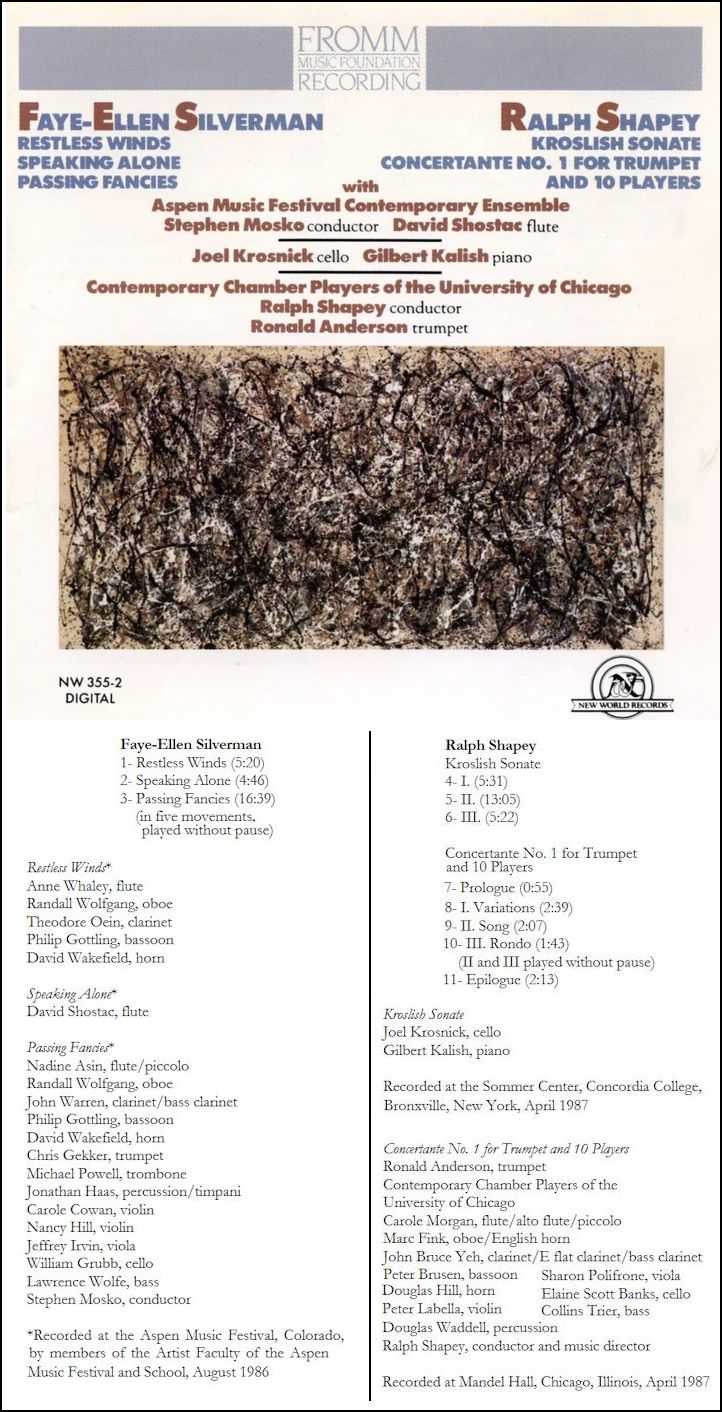 BD: You met it head-on?
BD: You met it head-on?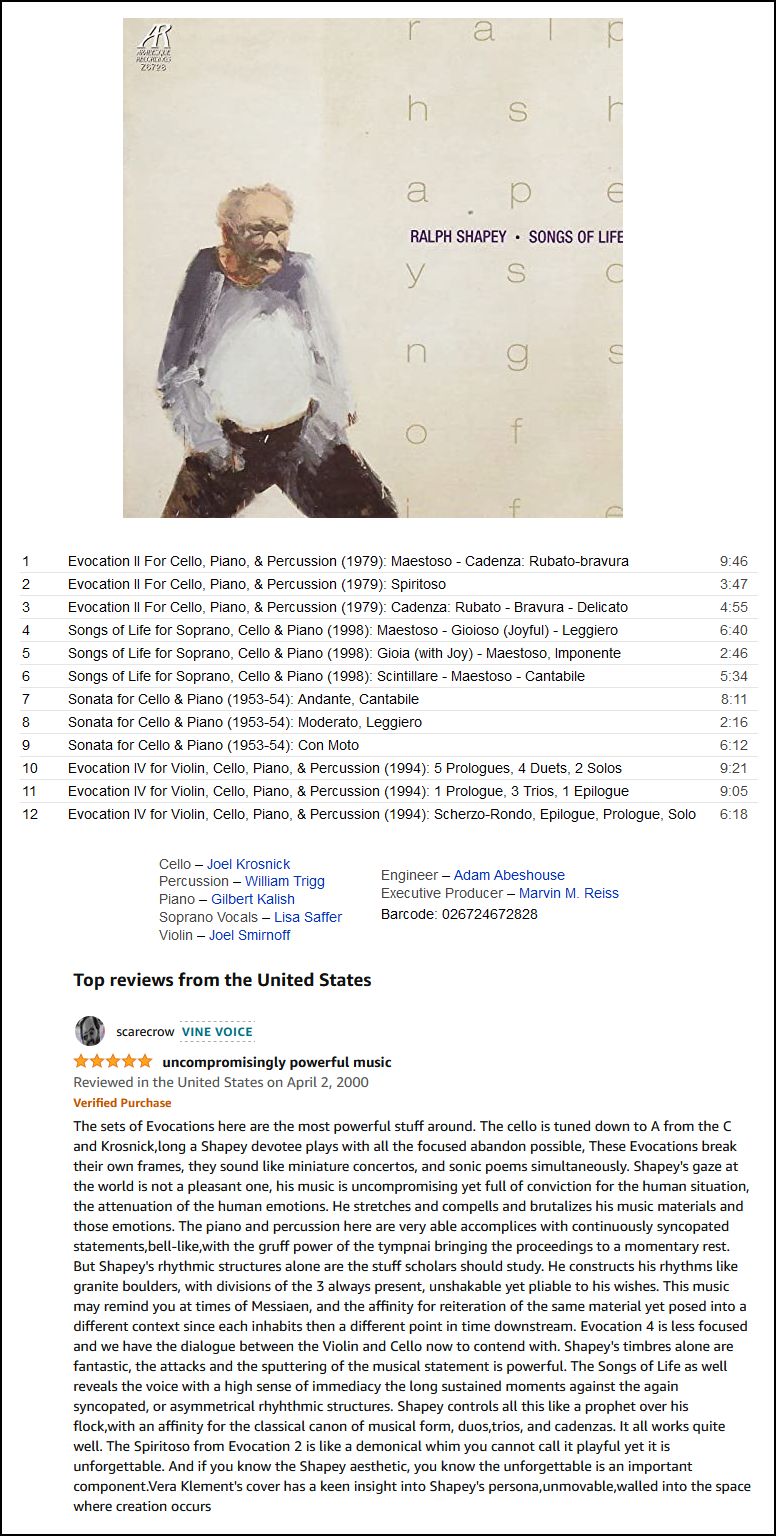 BD: Let me turn the conversation
back to music again. What do you feel should be the place of
music in society... [Shapey bursts out laughing] ...in twenty-five
words or less.
BD: Let me turn the conversation
back to music again. What do you feel should be the place of
music in society... [Shapey bursts out laughing] ...in twenty-five
words or less.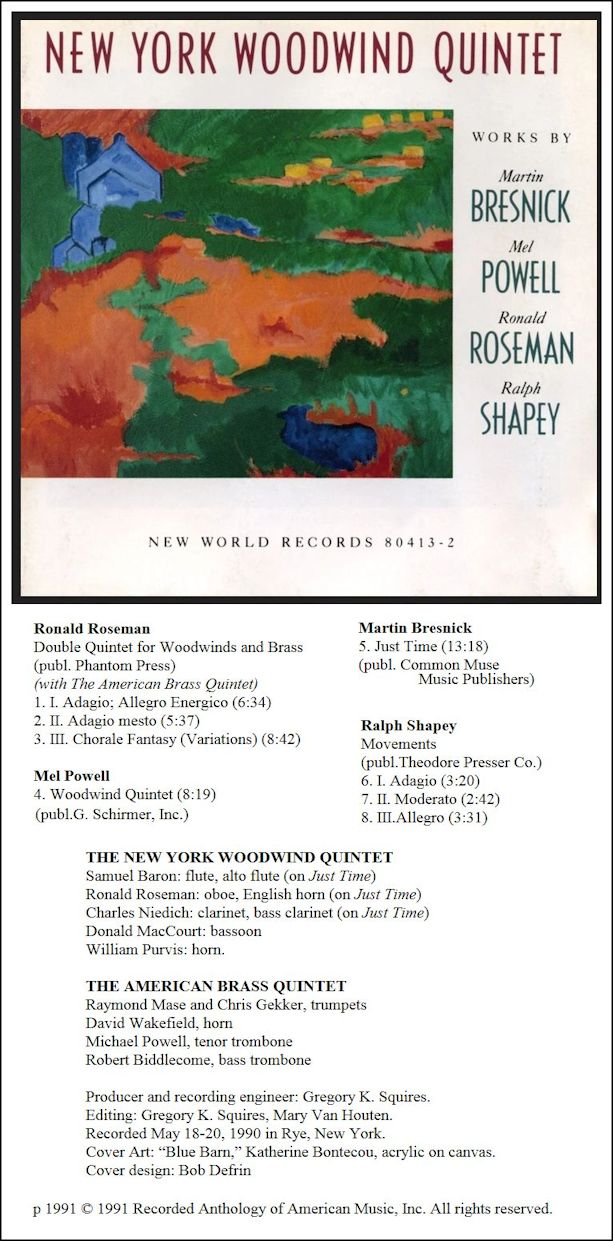
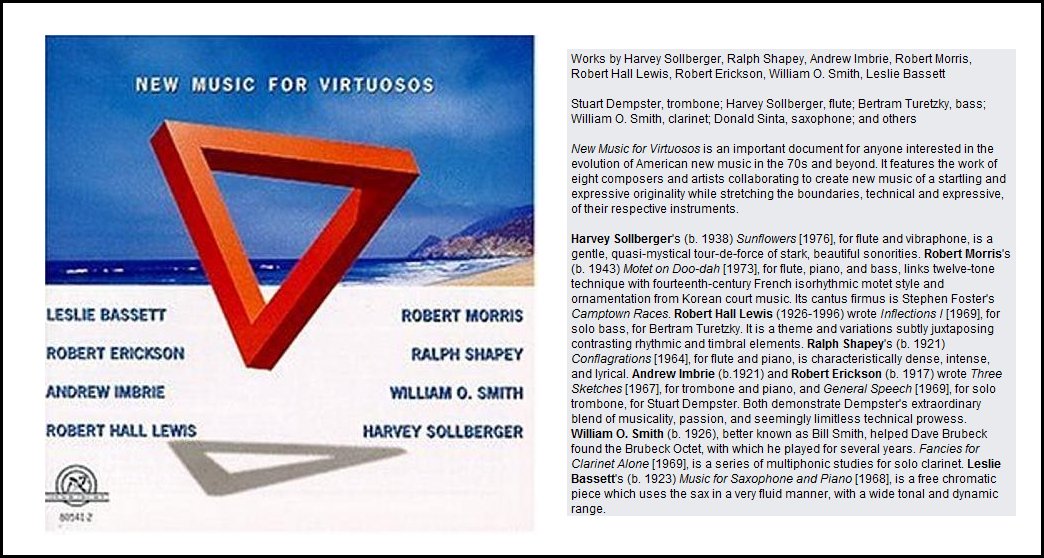
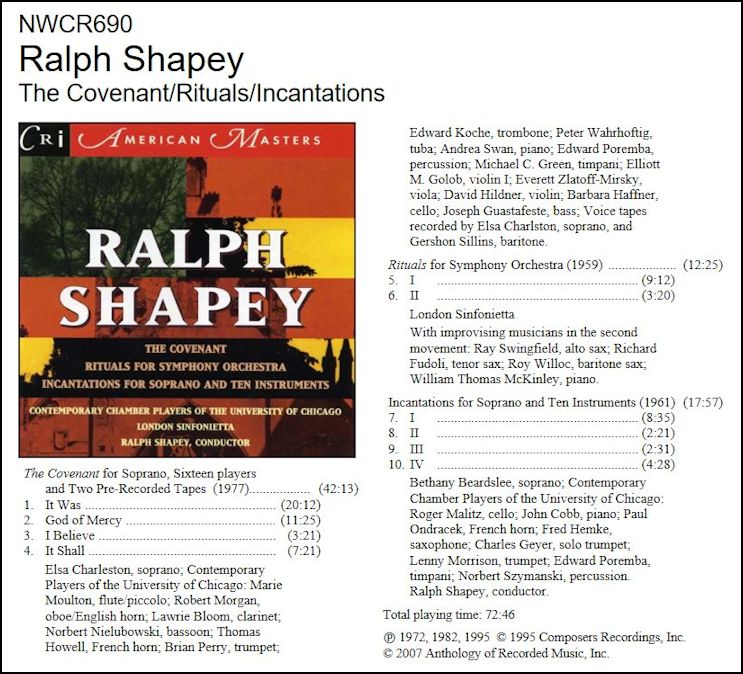
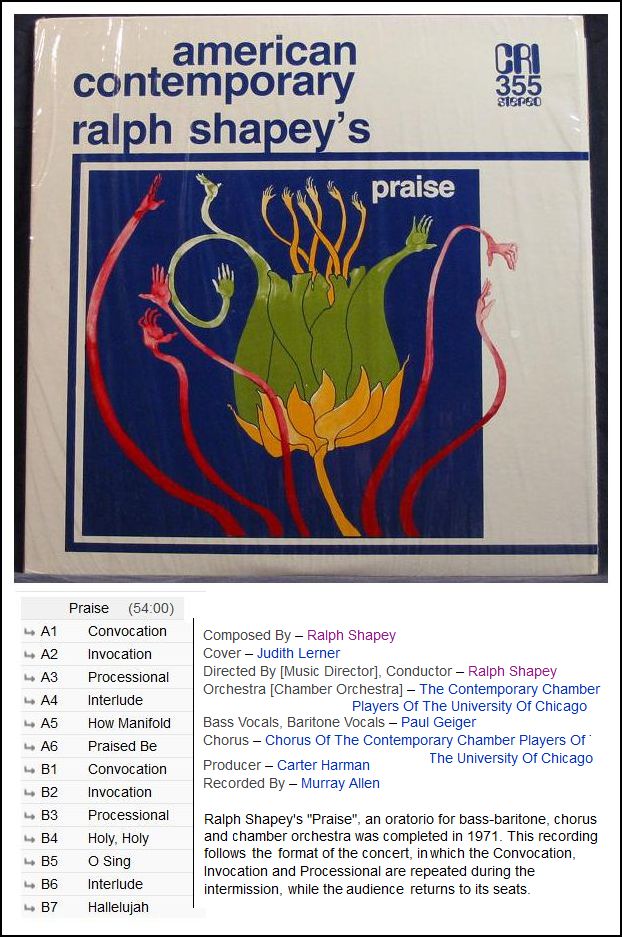
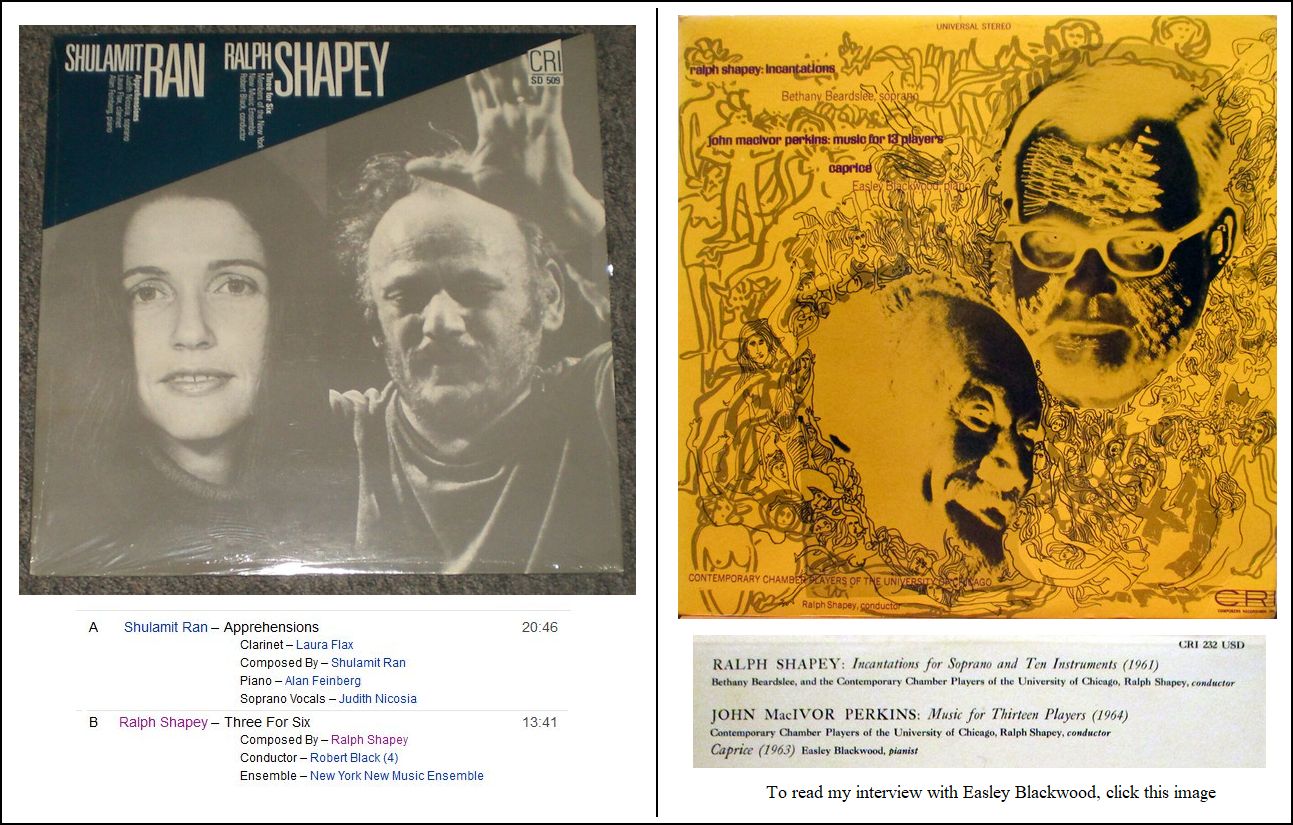
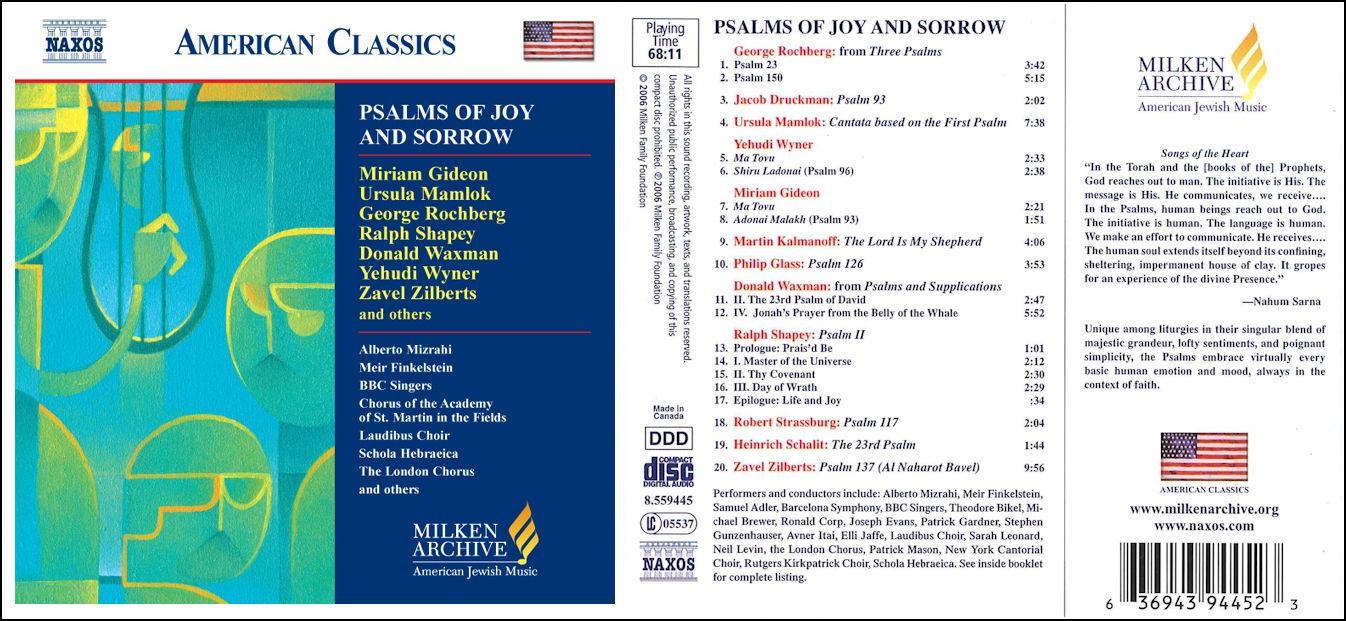
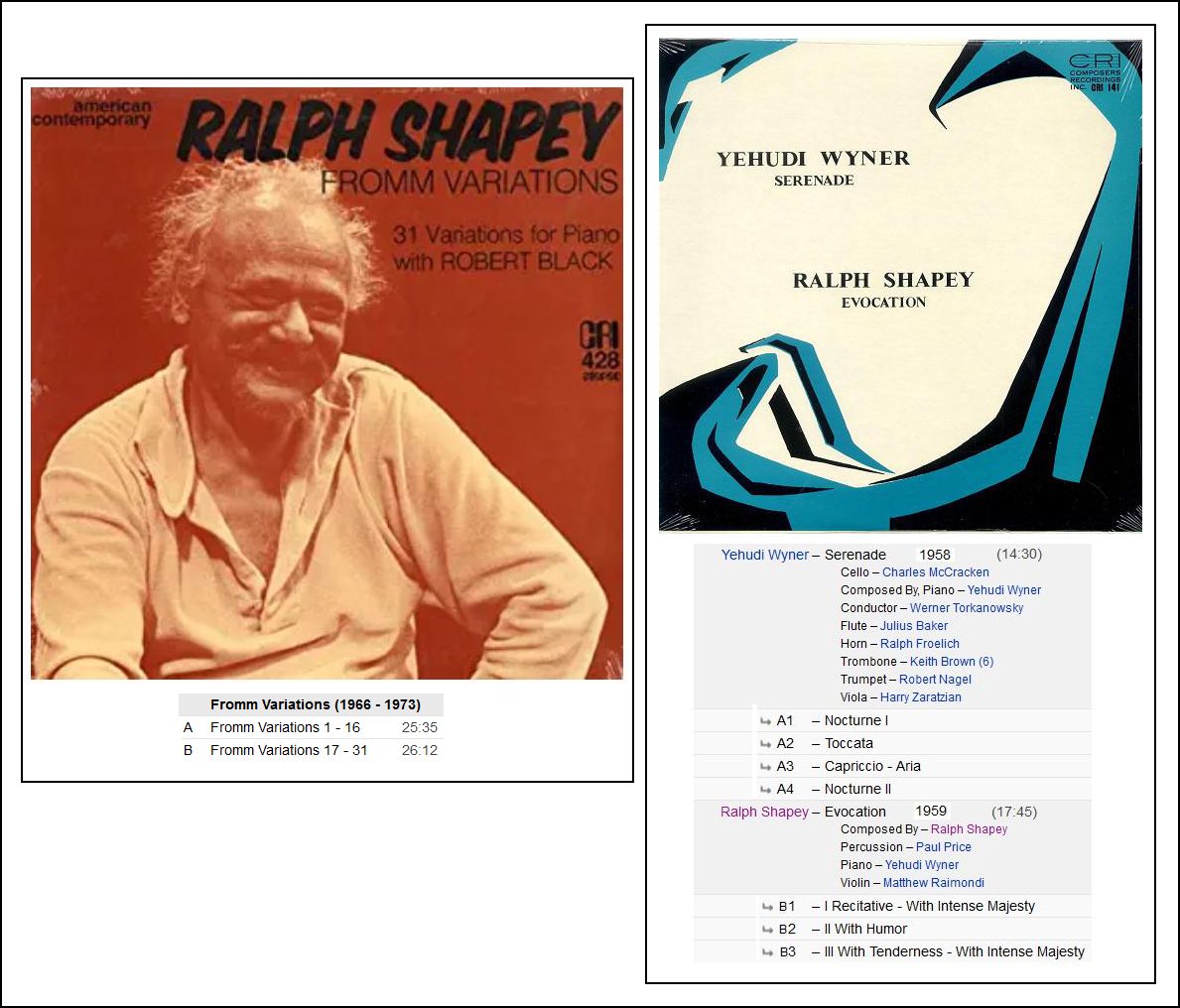
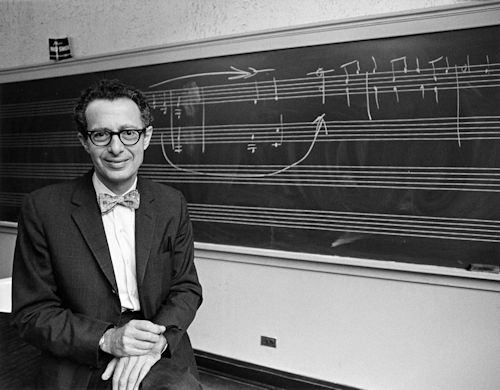 Leonard B. Meyer (January 12, 1918 – December 30, 2007)
was a composer, author, and philosopher. He contributed major works
in the fields of aesthetic theory in music, and compositional analysis.
Leonard B. Meyer (January 12, 1918 – December 30, 2007)
was a composer, author, and philosopher. He contributed major works
in the fields of aesthetic theory in music, and compositional analysis.Meyer studied at Columbia University, where he received both a B.A. in Philosophy, and an M.A. in Music. He continued on to study at University of Chicago, where he was awarded a Ph.D. in History of Culture in 1954. As a composer, he studied under Stefan Wolpe, Otto Luening, and Aaron Copland. In 1946, he became a member of the music department at the University of Chicago, in 1961 he was appointed professor of music at the University of Chicago and in 1975 professor of music and the humanities at the University of Pennsylvania. He became professor emeritus at Pennsylvania in 1988. His most influential work, Emotion and Meaning in Music (1956), combined Gestalt Theory and theories by Pragmatists Charles Sanders Peirce and John Dewey to try to explain the existence of emotion in music. Peirce had suggested that any regular response to an event developed alongside the understanding of that event's consequences, its "meaning". Dewey extended this to explain that, if the response was stopped by an unexpected event, then an emotional response would occur over the event's "meaning". Meyer used this basis to form a theory about music, combining musical expectations in a specific cultural context with emotion and meaning elicited. His work went on to influence theorists both in and outside music, as well as providing a basis for cognitive psychology research into music and our responses to it.Meyer's 1967 work "Music, the Arts, and Ideas," was influential in defining the transition to postmodernism in light of new works such as George Rochberg's Music for the Magic Theater, which was premiered at the University of Chicago in 1967. Other major written works include, The Rhythmic Structure of Music (with Grosvenor Cooper, 1960), Explaining Music (1973), and Style and Music: Theory, History, and Ideology (1989; paperback reprint ed., 1997)* * *
* *
Bernard Jacobson (b. 1936) worked in the music field for over fifty years, including stints as recording executive, music critic of the Chicago Daily News, artistic director and adviser for international orchestras in Holland, and visiting professor at Roosevelt University's Chicago Musical College. He has also performed and recorded as narrator of concert works and opera. |
© 1987 Bruce Duffie
This conversation was recorded in Shapeys apartment in Chicago on May 4, 1987. Portions were broadcast on WNIB six months later, and again in 1991 and 1996; and on WNUR in 2002, and 2008. This transcription was made in 2021, and posted on this website at that time. My thanks to British soprano Una Barry for her help in preparing this website presentation.
To see a full list (with links) of interviews which have been transcribed and posted on this website, click here.
Award - winning broadcaster Bruce Duffie was with WNIB, Classical 97 in Chicago from 1975 until its final moment as a classical station in February of 2001. His interviews have also appeared in various magazines and journals since 1980, and he now continues his broadcast series on WNUR-FM, as well as on Contemporary Classical Internet Radio.
You are invited to visit his website for more information about his work, including selected transcripts of other interviews, plus a full list of his guests. He would also like to call your attention to the photos and information about his grandfather, who was a pioneer in the automotive field more than a century ago. You may also send him E-Mail with comments, questions and suggestions.